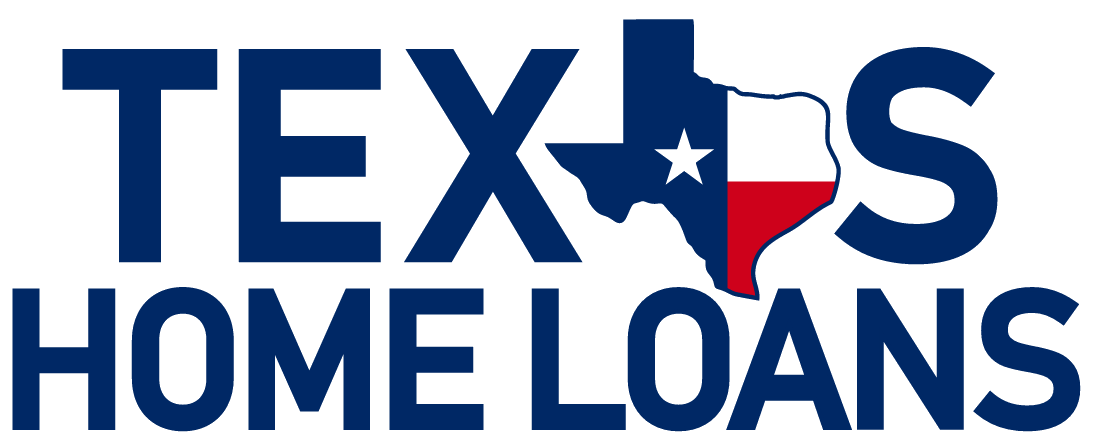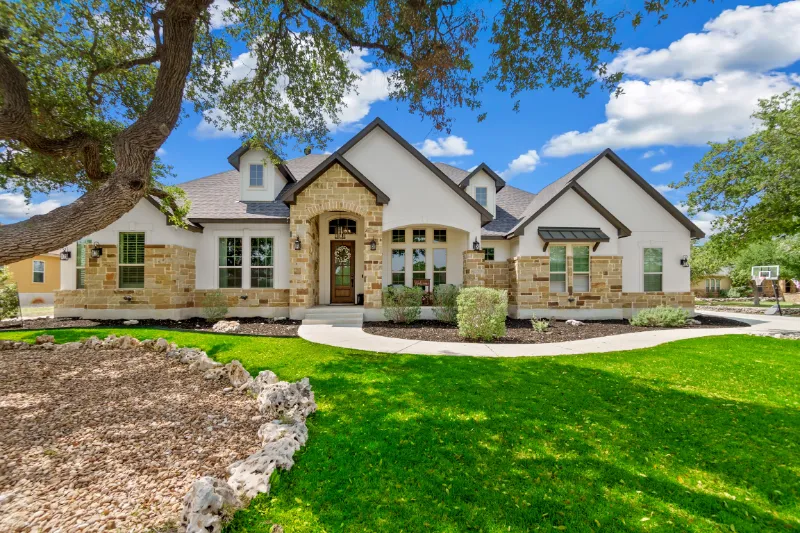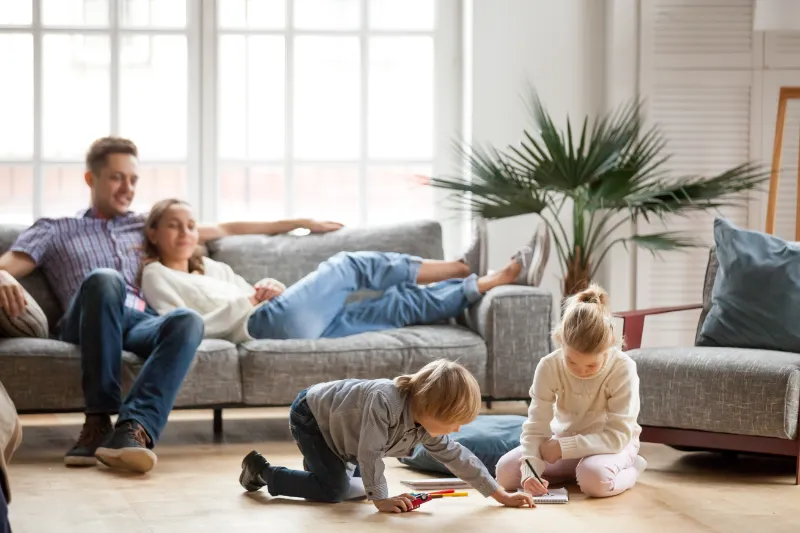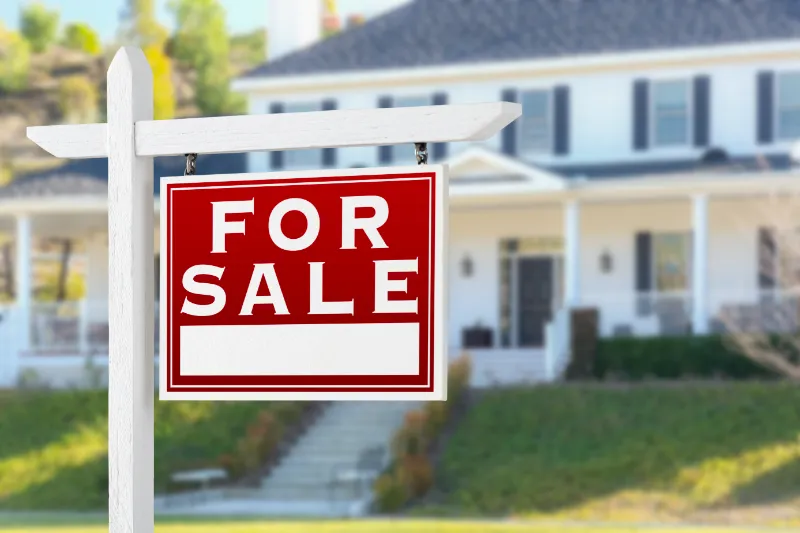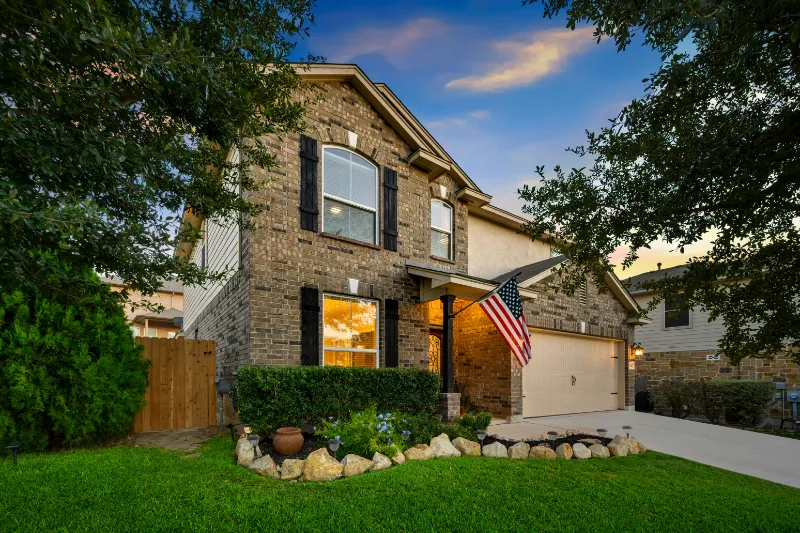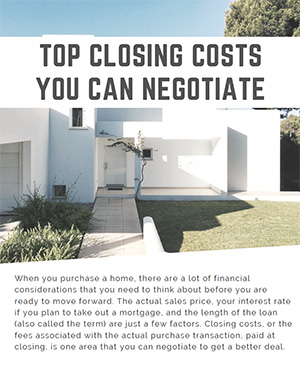When buying a home, many factors influence the decision-making process, and school districts are often…
Building or Buying: Deciding on Homeownership in Texas
Deciding to build or buy a home is important in planning homeownership. Understanding Texas’s trends and market is crucial. Factors such as costs, land availability, and the housing market’s state are significant. Having clear homeownership goals is essential, whether you’re a first-time buyer or planning your dream home. Considering aspects like immediate move-in and hidden costs when buying an existing property is crucial. Choosing between building and buying involves evaluating your needs, future plans, and finances. The path to homeownership in Texas combines opportunities and thoughtful decisions.
The Texas Housing Market
The Texas housing market is known for its strong demand and competitive nature. In recent years, it has been characterized as a seller’s market, where the demand for homes exceeds the supply. This has led to rising home prices and increased competition among buyers. Working with a knowledgeable real estate agent is essential in navigating this market and finding the right home at the right price. Property taxes and sales prices can vary across Texas, so it’s important to consider these factors when deciding between building or buying a home.
Current Trends in Homeownership
The current trends in homeownership in Texas reflect the desire for new homes that meet specific needs and lifestyle preferences. Many individuals and families are opting to build new homes to customize their living spaces and create a sense of ownership from the ground up. This trend is driven by the increasing availability of land and the desire for modern amenities and energy-efficient features. However, some individuals still prefer the convenience and affordability of existing homes. Ultimately, the decision to build or buy a home in Texas depends on individual homeownership goals and financial considerations.
Factors Influencing the Market in Texas
Several factors influence the housing market in Texas and impact the decision to build or buy a home. Property taxes vary across the state and can significantly affect the overall cost of homeownership. Additionally, closing costs, which include fees associated with the purchase of a home, should be considered when budgeting for a new home. Working with a real estate agent who is familiar with the local market is essential in navigating these costs and ensuring a smooth transaction. By understanding these factors and their implications, prospective homeowners can make informed decisions about building or buying a home in Texas.
Homeownership Goals
Understanding your homeownership goals is crucial when deciding between building or buying a home in Texas. Consider your long-term plans, lifestyle preferences, and desired level of customization. Building a new home allows you to create a space that aligns with your vision and meets your specific needs. On the other hand, buying an existing home offers immediate occupancy and the opportunity to own a property without the time and effort required for new construction. By clarifying your homeownership goals, you can make a decision that aligns with your vision of the perfect home in Texas.
First-Time Homebuyer Considerations
When entering the real estate market as a first-time homebuyer, it’s essential to consider various factors. Understanding your homeownership goals and financial decisions is crucial. Working with a real estate agent can provide valuable insights into the process of buying or building a home. Assessing your lifestyle needs and future plans will help determine whether building a custom home or buying an existing property is the right choice for you. Consider the available financing options, including mortgage insurance and construction loans, to make an informed decision and avoid unexpected costs. Ensure that the property aligns with your preferences and budget to set a strong foundation for your homeownership journey.
The Appeal of Building Your Dream Home
Embarking on the journey of building your dream home offers unparalleled allure and the chance to transform fantasy into reality. Customization reigns supreme in this process, allowing you to tailor every detail to suit your preferences, from floor plans to interior finishes. With the freedom to choose building materials, energy-efficient systems, and the overall design, the creation of a space uniquely yours becomes a tangible prospect. The excitement of witnessing your envisioned home take shape, step by step, coupled with the satisfaction of residing in a place built precisely to your desires, adds an incomparable charm to the idea of building your dream abode.
Financial Implications of Building a Home in Texas
Navigating the financial implications of constructing a home in Texas encompasses a myriad of considerations. From upfront costs such as land, material, and labor expenses to potential cost overruns and unforeseen expenditures, the financial landscape is intricate. Building a home entails securing a construction loan, managing material costs, and addressing any change orders that may arise during the building process. Additionally, homeowners must factor in long-term financial aspects such as property taxes, homeowners insurance, and maintenance expenses. While building a home offers the advantage of customization and potentially higher energy efficiency, individuals must carefully weigh these benefits against the financial commitments involved when choosing to embark on a new construction journey.
Upfront Costs and Budgeting for Construction
Navigating the world of construction entails meticulous budgeting to tackle upfront costs effectively. An essential aspect is understanding the financial decisions implicated in new construction projects. From material costs to labor expenses, every element must align with your affordability parameters. Factor in additional costs like building permits and unforeseen expenses that could arise during the construction phase. To streamline your budgeting process, consider seeking advice from professionals like real estate agents or home builders who can provide insights into cost projections and financing options tailored to your needs. Constructing a new home involves strategic planning to ensure your financial health throughout the building process and beyond.
Long-Term Savings and Investment Potential
When considering the long-term savings and investment potential of building a home versus buying an existing property in Texas, it’s essential to factor in various financial aspects. Homeownership, whether through new construction or an existing house, is a significant financial decision that can yield returns over time. Building a custom home allows for energy-efficient designs and modern amenities, potentially increasing property value. On the flip side, buying an existing property may involve renovations and unforeseen costs that could impact long-term savings. Analyzing the average cost of ownership, potential appreciation, and resale value can guide you in making the right choice for your financial future. Ultimately, understanding the investment potential of your homeownership decision is crucial for building wealth and securing your financial well-being.
Navigating the Process of Buying an Existing Home
Navigating the process of buying an existing home can be both exciting and daunting. It involves thorough research, negotiations with sellers, and understanding the local housing market dynamics. Consider hiring a real estate agent to guide you through the process, from home inspections to making an offer. Be mindful of potential hidden costs, such as renovations or unexpected expenses. Ensure you factor in property taxes, homeowners insurance, and any homeowners association fees. Conduct a detailed home inspection to uncover any underlying issues before finalizing the purchase. Familiarize yourself with the legal aspects of the transaction to make informed financial decisions.
The Search for the Perfect Home
With the Texas housing market evolving rapidly, the search for the perfect home becomes a critical consideration. Factors like current building codes and the availability of new construction homes are shaping the landscape. Prospective buyers are navigating through aspects such as homeowners insurance and unexpected expenses. Making informed financial decisions is crucial, especially with the influence of mortgage insurance terms. Considering elements like energy efficiency and interior finishes in new constructions adds layers to the decision-making process. The guidance of a real estate agent can be invaluable in exploring existing properties or engaging in the design process for a custom home. Ultimately, finding the right balance between preferences and practicalities is key in fulfilling homeownership goals.
Understanding Mortgages and Financing Options
When contemplating building or buying a home in Texas, understanding mortgages and financing options is paramount. Whether opting for new construction or an existing property, financial decisions play a crucial role in homeownership. Mortgages can vary based on the type of home – existing or new build. It is essential to explore financing avenues such as construction loans for building a home versus traditional mortgages for purchasing an existing house. Factors like interest rates, down payments, and mortgage insurance need careful consideration to make the right choice. Engaging with real estate agents and mortgage lenders can provide insights into the best financing options tailored to individual needs.
Pros and Cons of Building a Home in Texas
Pros of building a home in Texas include customization to meet your homeownership goals, using the latest building materials for energy efficiency, and involvement in the design process. However, cons involve potential for cost overruns, dealing with change orders, and navigating the building process which requires a lot of decisions. It can also lead to unexpected expenses due to labor shortages or material costs. Considering factors such as construction costs, labor costs, and the availability of land, building a home in Texas can be a great option if you desire a custom home tailored to your preferences, but it requires careful financial planning and understanding of the building process.
Customization and Personal Touches
When deciding between building a home versus buying one in Texas, customization and personal touches play a significant role. Opting to build allows for complete customization, from layout design to selecting building materials, ensuring your dream home reflects your unique style and preferences. On the other hand, purchasing an existing home may limit customization options but could still offer room for personalization through interior finishes and renovations. Consider the level of control you desire over your home’s design and features when making this decision. Both building and buying present opportunities for creating a space that truly feels like home, each offering its own set of advantages in terms of customization and personal touches.
Timeframe and Construction Challenges
Navigating the timeframe for building a home versus buying an existing property in Texas can pose significant challenges. New construction homes, while customizable, often require adherence to current building codes and lengthy design processes. Delays can occur due to labor shortages and unexpected costs, impacting the construction timeline. On the flip side, buying an existing home offers immediate occupancy but may involve renovations to align with your preferences. It’s crucial to consider the time required for the building process, from acquiring available land to finalizing construction, along with potential cost overruns. Assessing the timeframe and understanding construction challenges is vital in making an informed decision between building or buying a home in Texas.
Pros and Cons of Buying an Existing Home
When considering buying an existing home, one advantage is immediate occupancy and convenience. You can move in right away without the delays of construction. However, there might be potential for hidden costs and renovations. Factors like outdated appliances or a roof in need of repair could lead to unexpected expenses. It’s essential to weigh the convenience of an existing property against the possibility of additional costs. Working with a real estate agent can help navigate these considerations and ensure you make an informed decision regarding purchasing an existing home in Texas.
Immediate Occupancy and Convenience
Opting to buy an existing home in Texas offers the advantage of immediate occupancy and convenience. Unlike building a home, which can take several months to complete, purchasing an already constructed property allows you to move in quickly, saving you time and the hassle of waiting for construction to finish. This fast-track to homeownership is particularly appealing for individuals who require a place to live promptly or those looking to avoid the extended timeline associated with new construction. Additionally, established homes often come fully equipped with essential features and amenities, making the transition smoother and more convenient for the homeowner. The allure of instant availability in the fast-paced real estate market of Texas cannot be underestimated.
Potential for Hidden Costs and Renovations
When considering buying an existing home, it’s crucial to be aware of potential hidden costs and renovation expenses that may arise. These additional expenses could include unforeseen repairs, upgrades, or maintenance tasks that were not initially apparent during the purchasing process. Factors such as structural issues, outdated appliances, or the need for cosmetic updates can add significant financial burdens to homeowners. Renovations can quickly escalate in cost and complexity, impacting both your budget and timeline. It’s advisable to conduct a thorough home inspection and research the property’s history to uncover any underlying issues that may require attention. Being prepared for these potential costs can help you make an informed decision between building a new home or buying an existing property.
Making the Decision: Building vs. Buying
Assessing your lifestyle and future plans is crucial when deciding between building or buying a home. Consider your preferences for customization and the time it takes to build a house to align with your life goals. Financial health plays a significant role; evaluate your budget, available financing options, and the impact on your overall financial well-being. Understanding the building process, including potential unexpected costs and the time commitment involved, is essential to making an informed decision tailored to your needs. Additionally, factor in the current trends in homeownership and the state of the Texas housing market to make the right choice for your long-term satisfaction and investment.
Assessing Your Lifestyle and Future Plans
Before deciding between building a home and buying one in Texas, reflect on how your lifestyle and future plans align with homeownership. Consider factors like your desired location, space requirements, and long-term goals. Do you value customizability and control over the property’s design, or prefer the convenience of a readily available home? Assess whether you are ready for the commitment and responsibilities of homeownership, such as maintenance and financial obligations. Evaluate how a new construction home or an existing property fits into your envisioned lifestyle and future aspirations. Understanding your lifestyle needs and future plans will help determine if building or buying a home is the right choice for you in Texas.
The Impact on Your Financial Health
Making the decision between building a home versus buying an existing one significantly impacts your financial health. Building a new home can come with higher upfront costs due to construction expenses and land purchase, potentially requiring a construction loan. However, it offers the advantage of customization and potentially lower maintenance costs over time. On the other hand, buying an existing home may involve lower initial costs, but hidden issues like repairs and renovations can increase expenses. Understanding your financial situation, including factors like mortgage options, interest rates, and long-term affordability, is crucial in determining the impact on your financial well-being. Careful consideration of these aspects is essential to make a financially sound choice between building and buying a home.
Frequently Asked Questions
How does the cost of building a home compare to buying a pre-existing one in Texas?
Building a home in Texas can offer customization but requires upfront costs for construction. Buying an existing home may provide immediate occupancy but could involve potential hidden costs. Consider your priorities and budget to decide between the two options.
What are the advantages of building a home in Texas versus buying an existing one?
Building a home in Texas allows for customization and personal touches, while buying an existing one offers immediate occupancy and convenience. Consider factors like timeframe, construction challenges, and potential hidden costs when deciding between the two options.
What factors should I consider when deciding between building or buying a home in Texas?
Factors to consider when deciding between building or buying a home in Texas include budget, timeline, customization needs, location preferences, maintenance responsibilities, and resale value potential.
Conclusion
Whether you decide to build or buy a house in Texas, knowing trends, costs, and goals is essential. Constructing your dream home allows customization and savings over time. Purchasing an existing home gives instant occupancy and convenience. Evaluate your lifestyle, future plans, and finances carefully. Think about extra expenses, renovation options, and building obstacles. Most importantly, focus on what suits your needs for a fulfilling homeownership journey in Texas.
